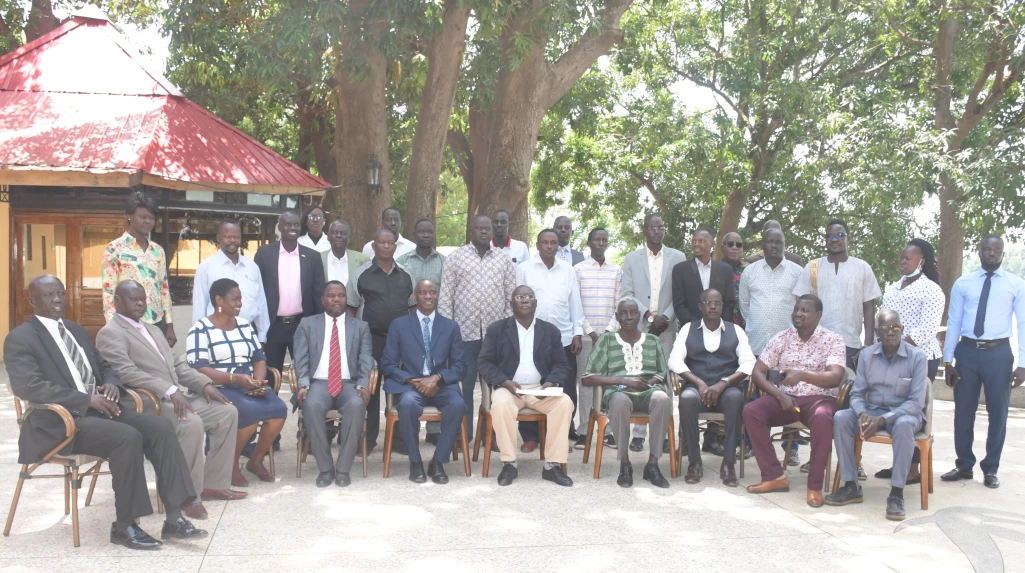
The Commissioner of Access to Information, Moyiga Nduru, has directed the states’ Ministries of information to allow journalists to cover Pope Francis’s planned visits to South Sudan in July.
This came during the engagement in the constitution-making process for state Directors and media stakeholders in Juba on Tuesday.
Moyiga says media play a critical role in informing the public, and it should be empowered and allow journalists access to important events.
On Sunday, the Vatican published the program of Pope Francis’ 37th Apostolic Journey to South Sudan and the Democratic Republic of Congo in early July.
Mr. Nduru called the states to look after the journalists and sent reporters to juba to cover the Pope’s visit.
“We are going to have a very important guest in July. This is also an area where journalists will play major roles. If you’ve journalists in your states and administrative areas, also send them for coverage because it’s a big occasion because Pope, come once in a while, maybe it will not come again after one hundred years,” he said.
The Representative of the UN Educational, Scientific and Cultural Organization (UNESCO) in South Sudan, Julius Banda, encouraged the media to use national languages to ensure people fully participate in the conversations.
He says media is a pillar of informing the people about the permanent constitution-making process to ensure citizens freely express their views. He urged the government to the allowed flow of ideas during the process and stopped the denial of rights.
The Executive Director of the Association for Media Development in South Sudan, Michael Duku, who organized the workshop, says the initiative is to enlighten the duty bearers on the permanent constitution-making process and the rights of citizens to participants.
“As we all know, our country is in a transition vide the revitalized peace agreement, there are specific tasks and milestones to be achieved ahead of us, and we have a role to play to contribute to the success of these tasks and milestones. One important milestone will be to have a permanent Constitution.”
Duku says the media played a significant role in the past national events, such as the election and the referendum. It can do much better now in the constitution-making process, building on that experience and taking lessons learned.
The Director-General in the Ministry of Information in Northern Bahr El Ghazal, Barnaba Aguer Deng, welcomed the call but highlighted countless challenges facing states media. He says some government-owned radio not function due to lack of funds.
Deng called on the national government and partners to support the state’s media institutions and provides training to local journalists at the grassroots.